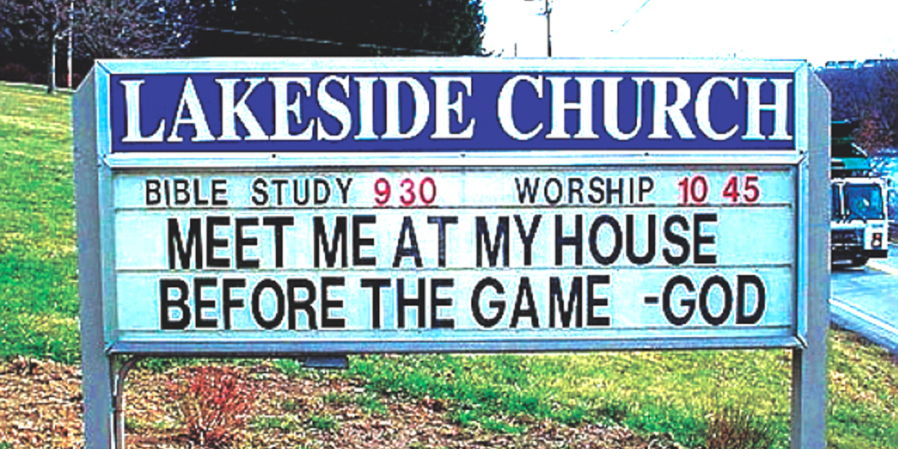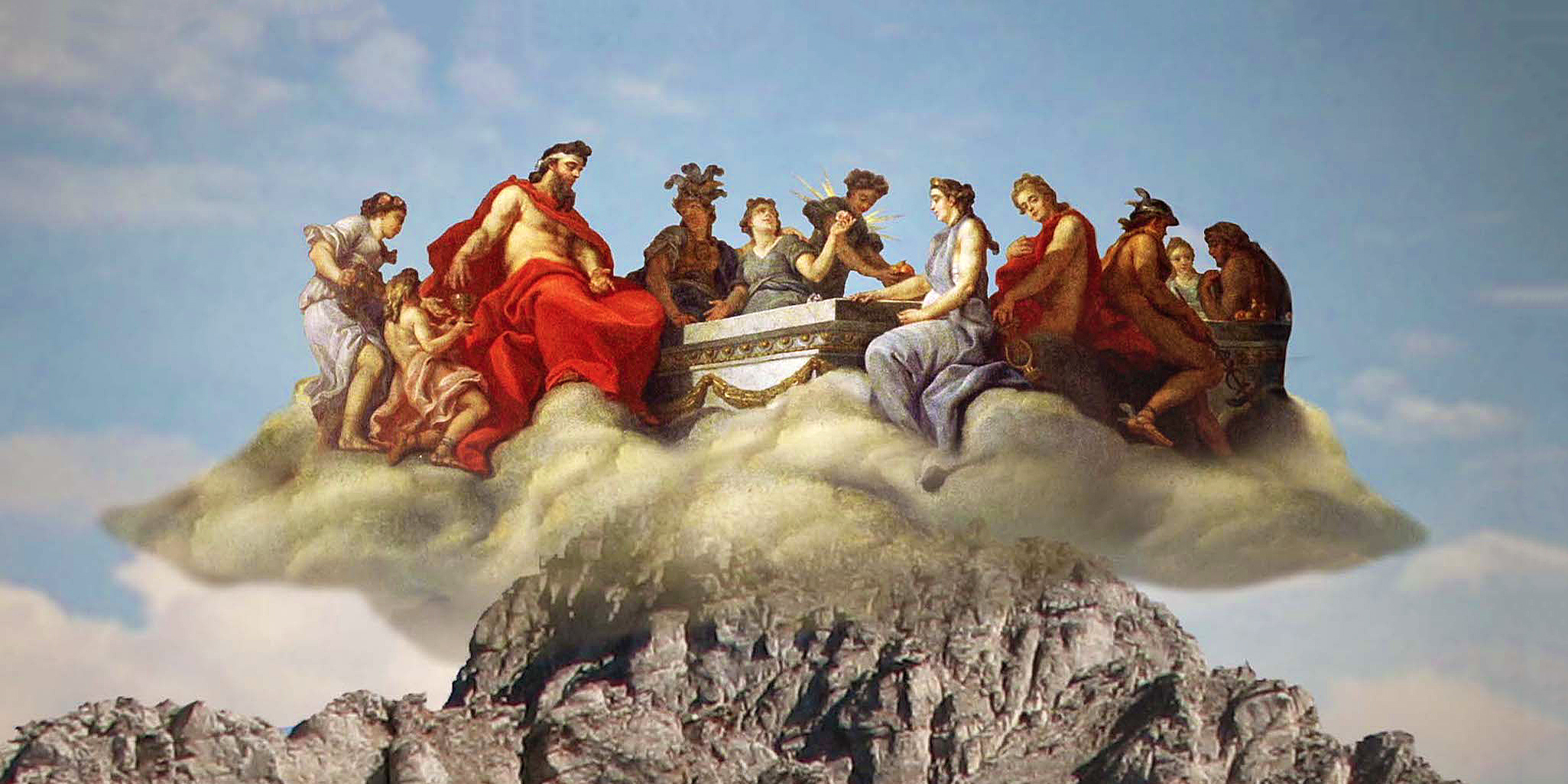If you needed to see God immediately, where would you go? Where do you go to find God? Where does he live? Does he even have a primary residence? Can you find his address in a directory?
For some, God resides in specific locations. Perhaps it’s a specific building, like an ancient temple, or an ancient monastery. A “thin place,” if you will. Or perhaps God makes appearances at special events at certain times of the year. Maybe it’s a seasonal thing? Like Lent or Ramadan. He could be in a sacred river or a sacred tree. For others, people meet God through an intermediary or gatekeeper like a shaman, guru, priest, rabbi, prophet, pastor, evangelist, etc.
Maybe there are steps you have to take before you can see him? Like going through certain rituals. Maybe a ceremonial bath? Or there could be a liturgical cadence you need to follow for him to appear. You say the magic words and he’s there. Perhaps, you can find him if you go on a spiritual retreat or pilgrimage. There are some that say he will meet you if you are dining on consecrated food and drink.
What about the person who has no knowledge of these prescriptions and conditions? What about the alcoholic that can’t drink wine? Or what if are you allergic to bread? What if you don’t have the means to get bread and wine? What if you can’t take time off of work to go on the retreat or get to the sacred river? What then? What about the bum on the street? Or the person who is facing death? Or the child who is born without much chance to live? What about the hard-core religious zealot, like Saul on his way to murder outlaw Christians? What hope do they have if encounters with God can only be in a specific or prescriptive way?

One of the consistent themes of Jesus’ ministry, in his parables and in his interactions with specific individuals, was to show people how to find God, or more specifically, how God finds us. You might find him precisely when you aren’t looking for him. Or maybe like Saul on the Damascus road, God arrives when you are going to do a very bad thing.
At one point while traversing the countryside, Jesus sat down for a rest on top of a holy and sacred well. Jesus knows who built the well and he doesn’t hold it in high regard. Throughout his ministry he was dismissive of sacred architecture. He loses his cool and damages property at the holiest place of all. Fancy buildings really weren’t his kind of scene.
While he is sitting on that holy pile of rocks, a woman with the wrong kind of ethnic pedigree does her ordinary routine of fetching some water. When she sees Jesus, she essentially says to him, “Who do you think you are, sitting on the sacred well?” Little does she know this encounter will leave her changed forever. What does she find out about Jesus? He is greater than her father Jacob, greater than all of Jacob’s children, greater than Jacob’s wealth and possessions, even greater than this precious well. The lady starts to catch on, so pushes this iconoclast further. What does he think about the other holy places? She asks him where the right place to worship might be — this mountain or Jerusalem? If you’re in a pinch, where is the best place to meet God? Jesus tells her that anyone can find God wherever they find themselves. God is Spirit, not rocks and cedar. You could bring up any sacred place to Jesus and he would respond the same way. What she finds out is she is the sacred place — she is the well, not some pile of hallowed limestone. Her thirst is quenched for the first time and she leaves her water pot, never having to return.
Not long after this, Jesus heals a lame man at the pool of Bethesda. Characteristically, Jesus heals him on the very day you are forbidden to heal. Jesus, being who is, takes it up a notch and tells him to do the very thing he shouldn’t do on that day: take up your mat and go have a walk around. I think Jesus sets the poor boy up, because in the next scene the moralists find the man breaking the law and take him to a religious service. Jesus finds him there and he’s shocked to find him here of all places. Why would someone who couldn’t walk for 38 years get healed and come here? This will not do, so Jesus tells him “See, you are well! Stop sinning, that nothing worse may happen to you.”
Jesus accuses the man. What for? He didn’t accuse him the first time. What did he do? What worse thing could happen to him? What sin is he committing? What changed? Jesus frees him from the law by telling him to take up his bed and walk and then Jesus gives the healed man a hard time for finding him in a sacred place. Why? He’s trading in his new freedom for religion. The man left, thank God. He didn’t need to come back.

Jesus describes how he operates through his parables. He finds the lost coin, he finds the lost sheep, he finds the lost son. Jesus doesn’t stop or give up looking until he finds the lost. It doesn’t matter how long he has to look. He will find you. He refuses to let anything be lost forever. Let’s say you’re buried in some insignificant field. He’ll buy the entire field to get to you. You’ve been bought and paid for. No returns and no exchanges. He’ll use a dragnet and cover every square inch of the sea and sort through all the crap to get to you. Wise men still seek Jesus, sure, but it isn’t necessary to go looking for him. You can set on a journey to find him, but even better when he finds you like the woman at the well, the lame man, or Saul on the Damascus Road.
King David had divine insight on where his God was: “Where can I go from your spirit? Or where shall I flee from your presence? (Ps 139:7)” The question David asks is not how to find him, but how to escape him. Can we outrun him? If you go up to the heavens God is there, if you go to the depths of hell he’s there too. He’ll be in the lion’s den with you. If you find yourself in a fiery furnace he’ll be with you. If you have to go through the valley of the shadow of death he’s right next to you the whole way. If you are depressed and unable to get out of bed, he is “near to the broken hearted (Ps 34:18)”. “You hem me in behind and before, and you lay your hand upon me (Ps 139:5).” It turns out God is inescapable. His leaven, leavens the whole. There is no space he doesn’t occupy and fill. We can say like David said, “You are with me.”
At every turn, religion sets up obstacles for people to get to God. This is particularly done by professionals and experts, similar to the ones that the healed man at the pool encountered. The New Testament is clear that through the accomplished work of Jesus Christ, all obstacles have been eliminated. The curtain of that beautiful limestone temple was torn from top to bottom.
Jesus canceled the charge of our legal indebtedness, which stood against us and condemned us; he has taken it away, nailing it to the cross. And having disarmed the powers and authorities, he made a public spectacle of them, triumphing over them by the cross. Therefore do not let anyone judge you by what you eat or drink, or with regard to a religious festival, a New Moon celebration, or a Sabbath day. (Col 2:14-16)
It’s not about the place, time, season, day of the week, or diet. He laughs at, mocks, and destroys the religious principalities and powers that put obstacles between himself and you. There’s no one you need to find that can give you access to him. He’s destroyed and abolished all ordinances in order to bind himself to you. As Jesus himself said, “The coming of the kingdom of God is not something that can be observed: neither will they say, look here! or, look there! For, behold, the kingdom of God is within you” (Lk 17:10-21).
He’s not over there or at that place, on that hill, or in that season. He’s in you. To say God is over there is to say there is a separation. Nothing can separate you from him. He makes his abode in you. You are his house! It’s been you and him the whole time. It doesn’t matter where you go or what you do. He never leaves nor forsakes you.

COMMENTS
Leave a Reply












